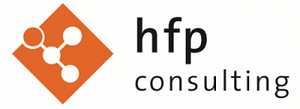
Science is a thrilling endeavour. But it can also be quite lonely. From their first steps as master students to reaching senior status, researchers face pressures that can create stressful environments and encourage individualistic behaviours. Then, when the time comes to become group leaders, most scientists find themselves responsible for other people and their careers. With a lack of formal training in managing human relations, senior researchers often find it difficult to supervise their teams and balance their many responsibilities.
Convinced that leadership and management difficulties can stand in the way of ground-breaking discoveries, the Vienna BioCenter has created a unique training programme. In this post, Eva Schmid, head of the scientific training team, tells us how and why their innovative approach is already changing life on campus, and how hfp consulting helped make their vision come true.
How to build a strong campus culture
“Some people are sceptical whether leadership can be taught,” says Eva Schmid. “But that is why we don’t provide just a workshop”. From the get-go, Schmid knew that to incorporate leadership and management skills into the very fabric of the Vienna BioCenter campus, she needed a different approach. For this reason, the programme, which she co-designed with Charlotte Hochman of Wow!Labs, is not about learning a few tips and tools. It is much more ambitious. It aims to achieve long-lasting behavioural change through a practical approach that lasts for a minimum of one year of training.
“Our goal is to foster a common culture that will take us further” Schmid explains. The first step in this direction is for people who occupy all types of leadership positions to become involved, leveraging everyone’s common goal: to excel and advance science. This raises the question: How do you create a programme that fits scientists, admin personnel, facility, and support leaders? “By creating a programme for us, by us” she argues. That is, a training focused on improving life on campus, co-designed with those who live and work there.
From vulnerability towards trust
At its inception, the programme began with a needs assessment. Listening to directors, group leaders, support leaders, as well as postdocs and students, Schmid, together with the external innovation expert Charlotte Hochman identified a readiness to address several common topics, but also various disparate subjects. “A one-size-fits-all approach would not be enough” she clarifies. There was an appetite to explore leadership skills, but each person wished to cater to the specific needs of their positions. And that is where hfp consulting came in.
“hfp was a great fit in terms of experience with an academic environment” Schmid explains, “and they were also willing to take on the challenge of working with a diverse group”. The first cohort of 15 people is, as Schmid puts it, “a perfect mix”. Not only do participants come from different departments, but their roles and level of responsibility is drastically diverse. Comprised of researchers, admin personnel, as well as facility and support personnel it matches the envisioned goals.
Through this mix and match, Schmid seeks to build bridges between departments, “creating a sense of journey towards a leadership mindset”, as she explains. And the best way to align efforts and create strong supporting structures is to balance different experience levels, gender, nationalities, and professional roles. “Everyone can learn from each other and foster mutual understanding, appreciation, and trust” she adds.
Fostering new collective habits
Consisting of three parts which Wow!Labs designed similarly to base camps of a mountain expedition, the programme allows participants to start at base 1 and choose the topics and skills to engage with as they progress. Everyone begins by participating in a retreat, where the frame for good leadership is set. From that point on, participants choose to deepen the skills that better suit their needs.
From effective communication to setting priorities and good goals, from delegation and motivation to proactive conflict resolution, as well as building personal resilience and handling stress, the scope of available topics is broad. More advanced skills will be trained in the future, and Schmid explains there is no end in sight. “Everyone is encouraged to participate in the following years and take on new modules”.
A pool of professional coaches, amongst them members of the hfp consulting team, are always on call to address individual challenges and particular hurdles. But the groups also meet regularly between training modules. In these meetings participants exchange solutions, identify challenges and function as a peer group, mentoring each other and deepening their learning experience.
“If you get to talk with your colleagues in such an intimate, vulnerable situation, it creates bonds” Schmid explains. People often think of leadership as a position or a title, but it is not. As Schmid puts it, “it’s a state of mind, a way of being”. At the Vienna BioCenter the conviction is that everyone can lead.
Being a good leader is simple, but rarely easy. “In a nutshell, you have to be a decent person, who cares about the people around you” she adds. “Ideally you are kind, vulnerable, transparent, caring, and communicate clearly during a disagreement or a conflict. This is not always straightforward. Thankfully there are tools that can steer behaviour in the right direction in difficult situations. For the tools to become second nature, like flexing a muscle, we need to practice. “We provide the gym to train these particular muscles, and a community to hold you accountable”.
Turning kindness into productivity
Launched earlier this year, this unique training approach is already paying off. Schmid celebrates that “people have told me that they are now talking to colleagues that they didn’t talk to before in the corridors, reaching out for advice to colleagues in different departments, and gaining appreciation for leaders in varying professional roles”. What began as a risky decision of mixing different profiles in a single training programme seems to have been the right decision. “We have to work together for science to progress”. A solid trust network will make a difference.
If you want to know more about our specific courses for Leadership and Management, please contact us.





